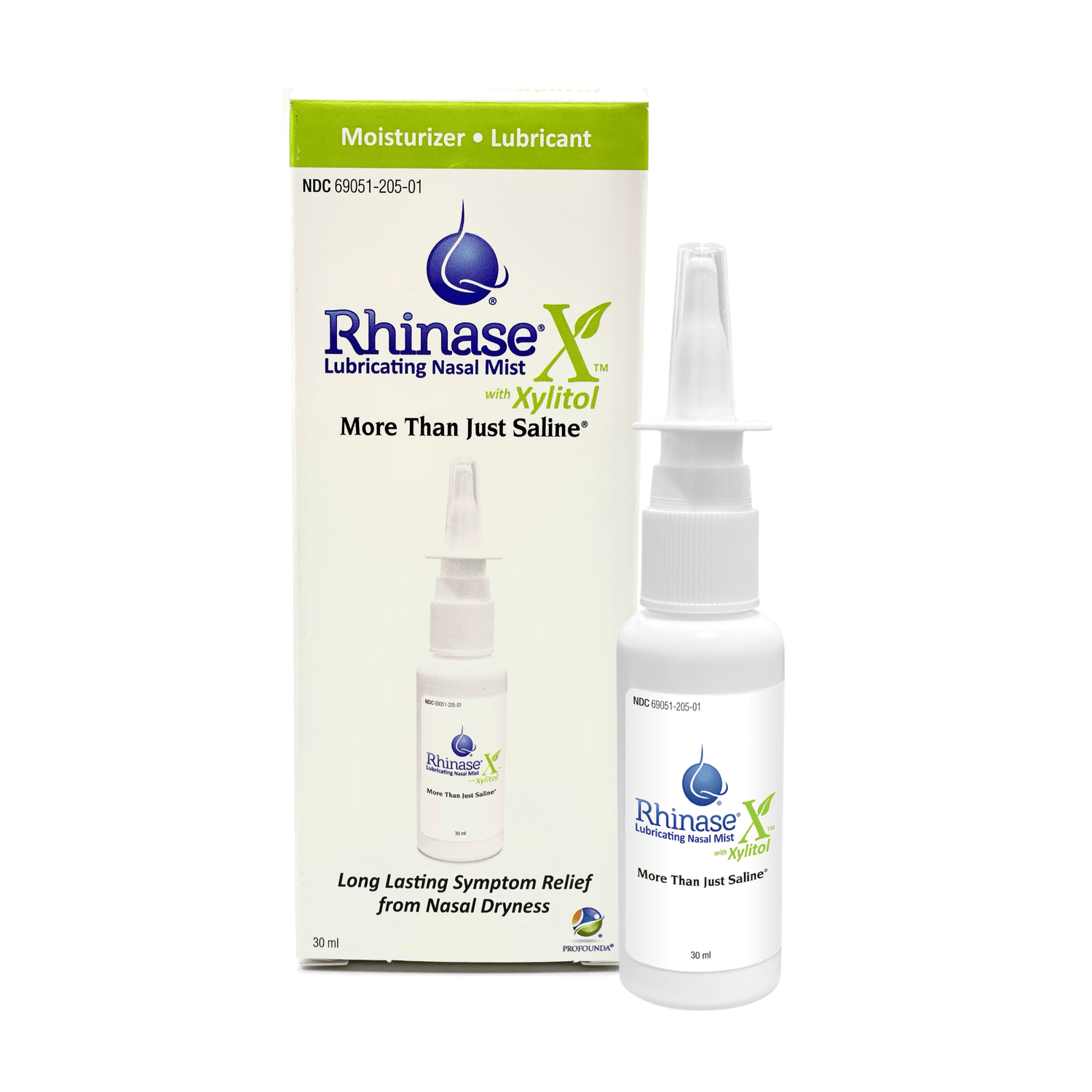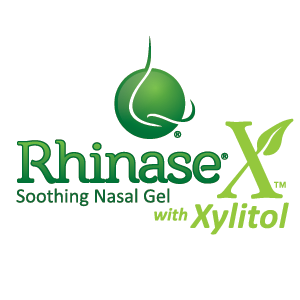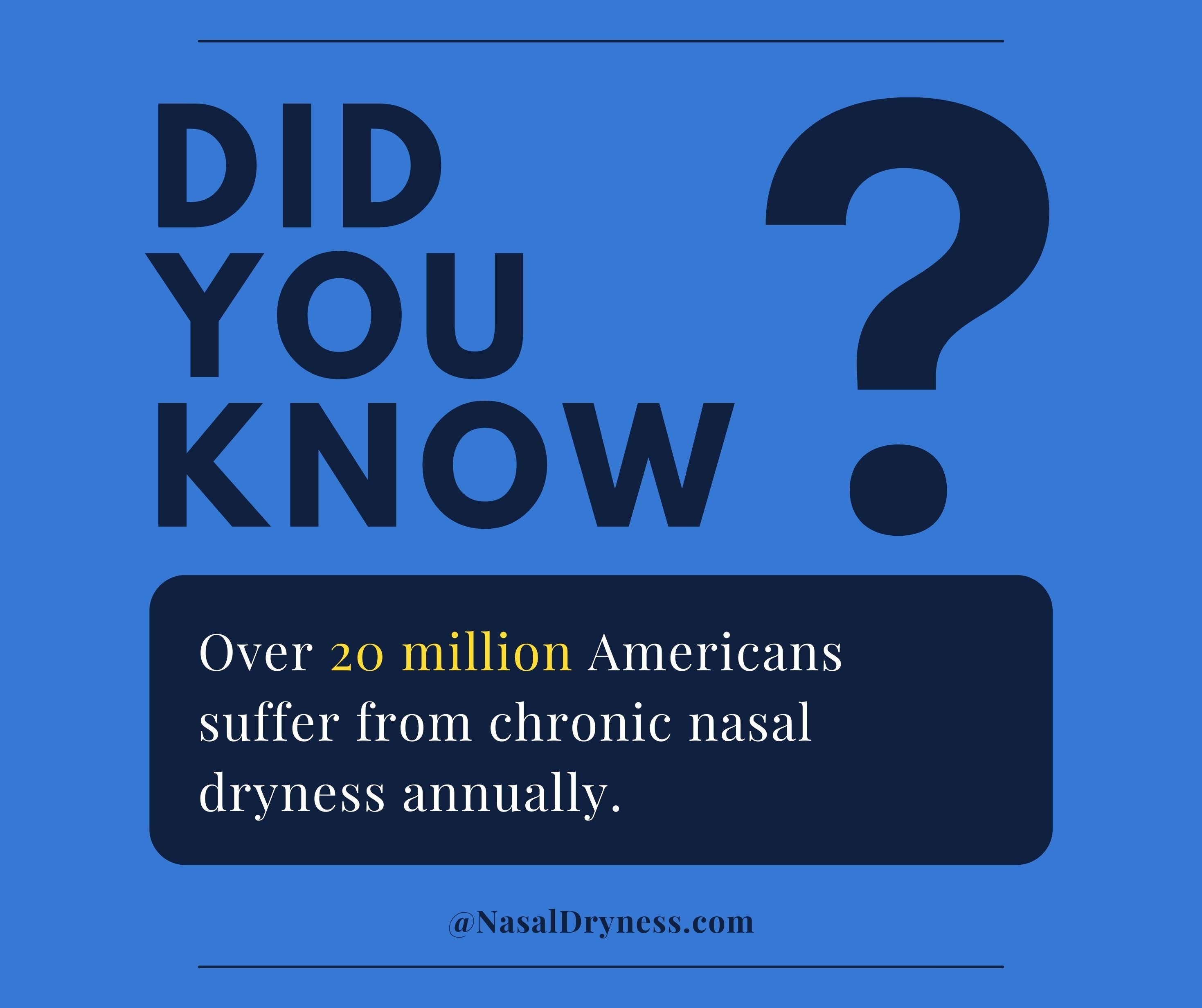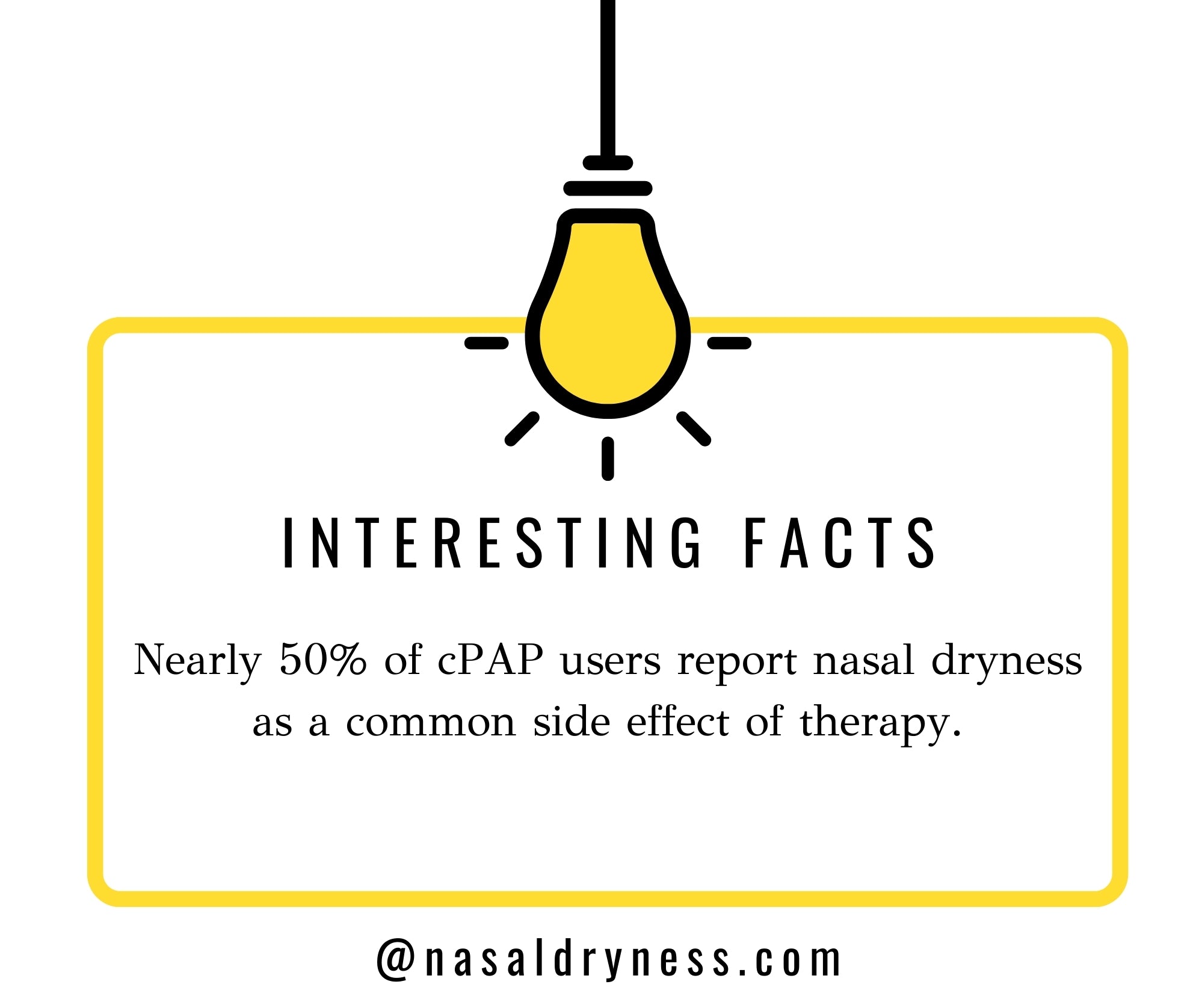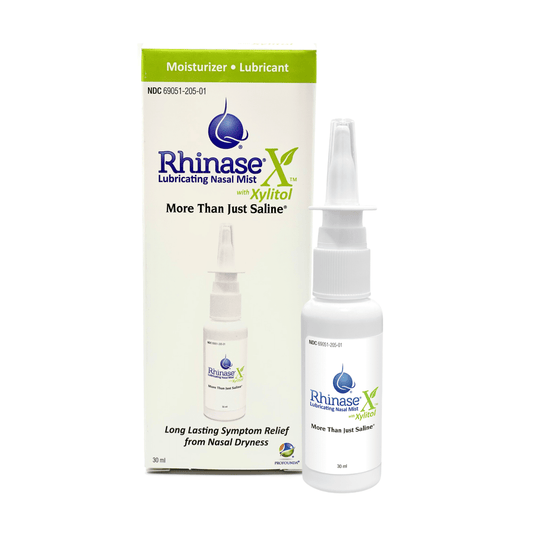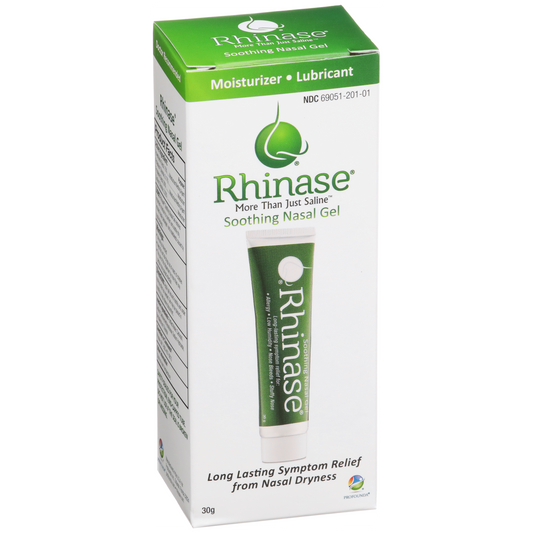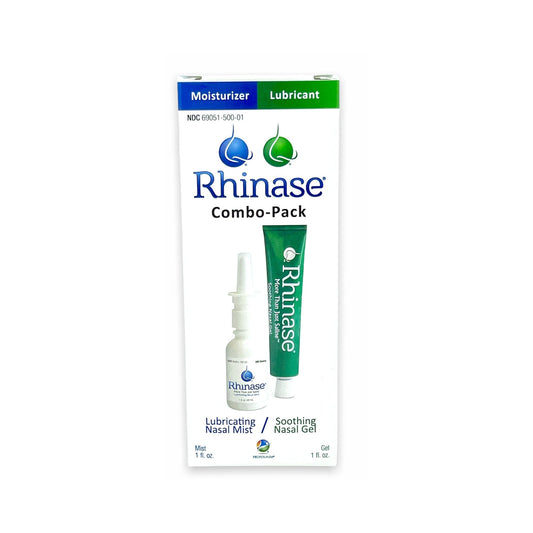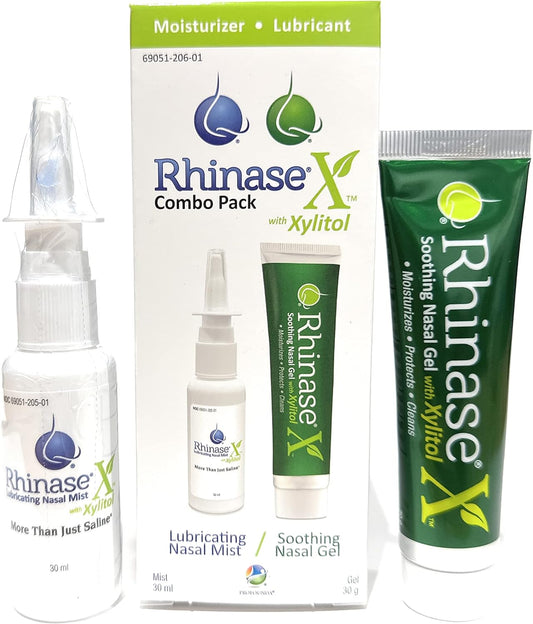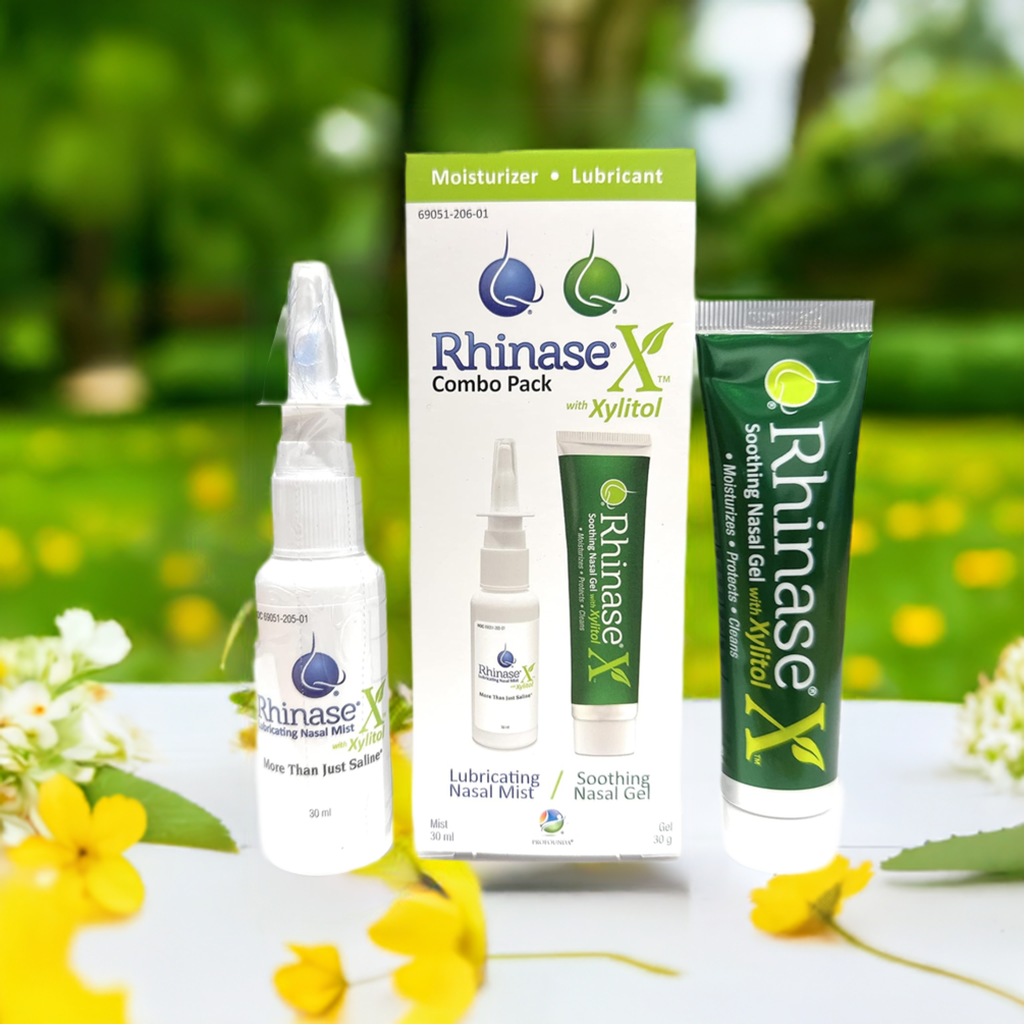
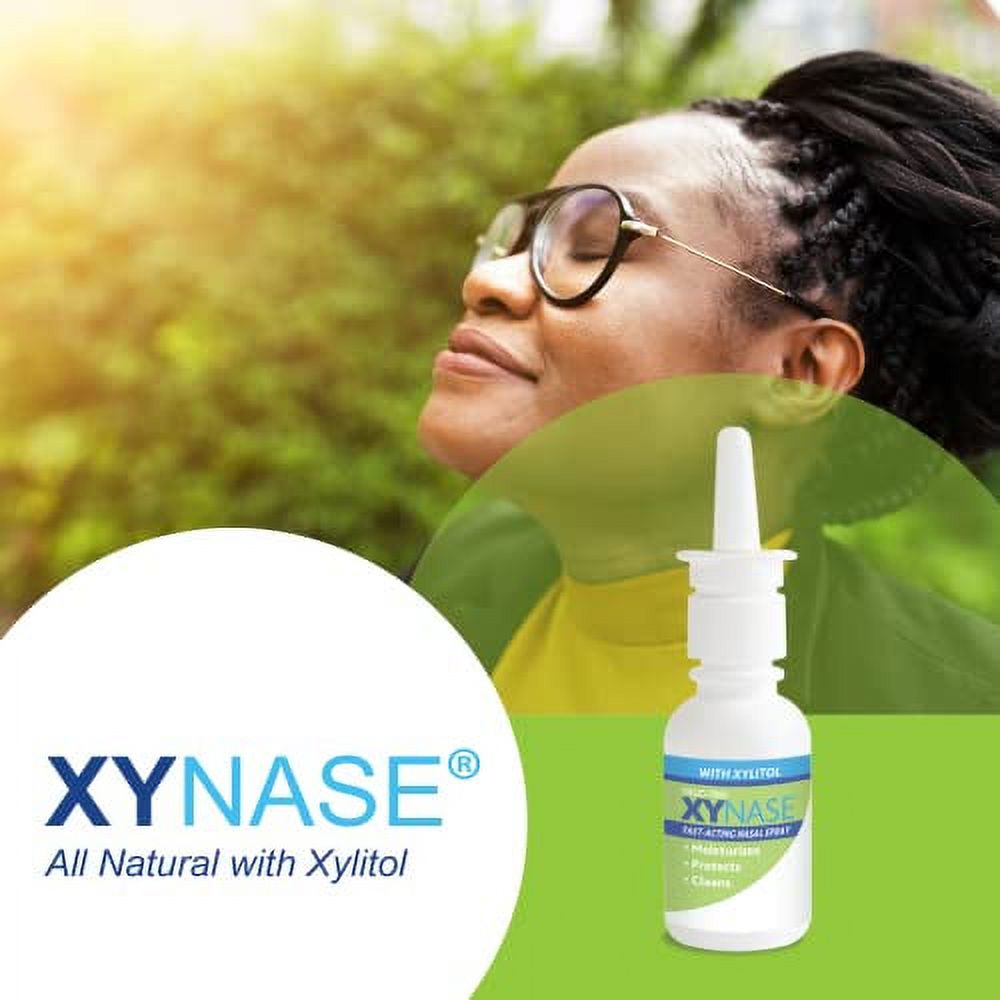
Unlocking the Mystery: Discover the Surprising Causes Behind Your Dry Nose!
Dive into the fascinating world of Nasal Health as we unravel hidden triggers behind your persistent dry nose discomfort and how to solve these issues.
Your essential guide to Dry Nose Causes, Symptoms, and remedies
Welcome to our comprehensive guide on nasal dryness! Here, you'll discover a wealth of information aimed at helping you understand the causes, symptoms, and effective remedies for dry noses. From exploring the various factors contributing to nasal dryness to learning how it manifests through common (and uncommon) symptoms, we've got you covered. Plus, we'll delve into practical tips and proven solutions to provide relief and improve nasal health. Whether your seeking answers or solutions, you'll find valuable insights to address your dry nose concerns here on our website.
Uncovering the culprits: Common Causes of dry nose
Buy Now-
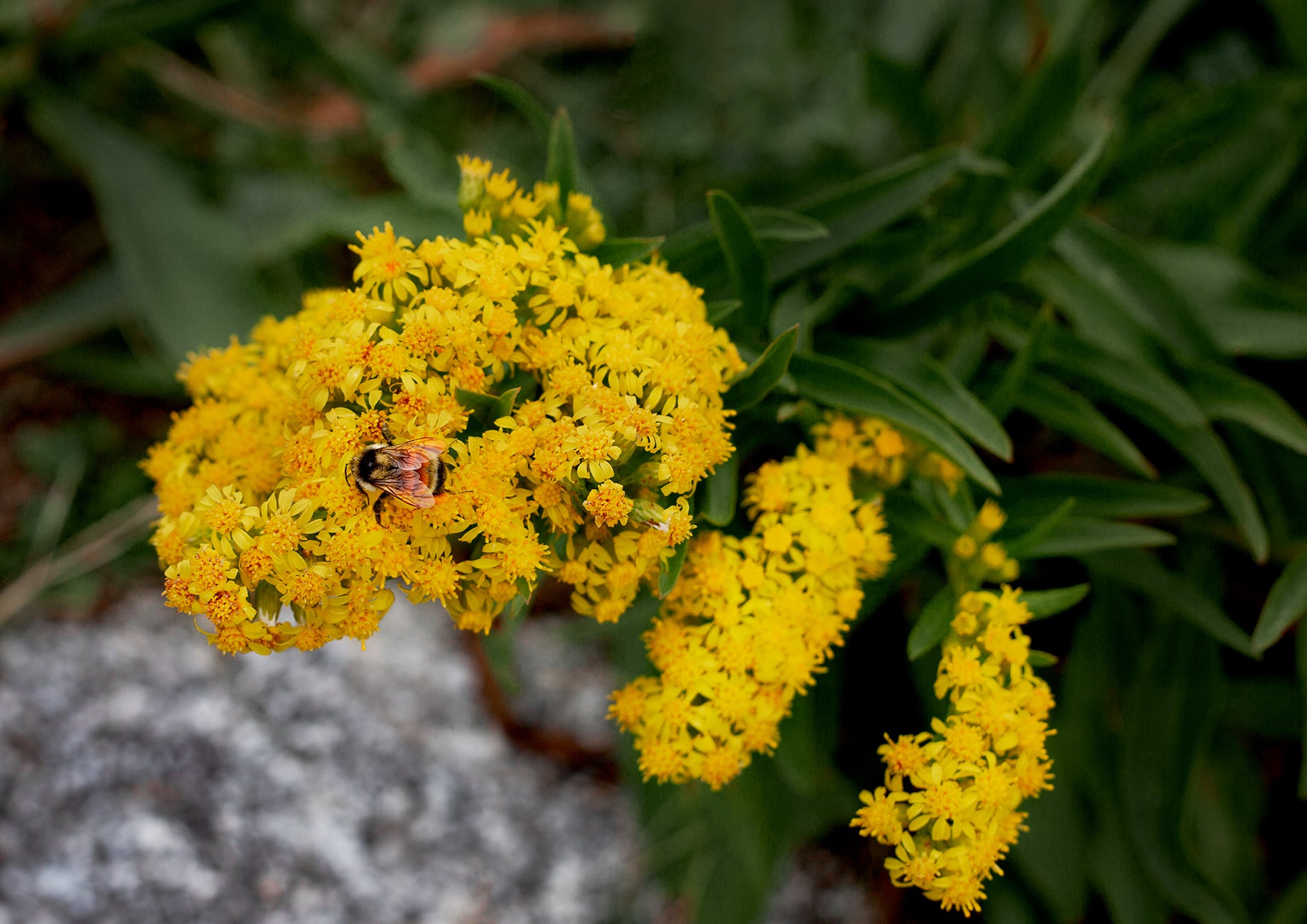
Allergies
Allergic reactions to pollen, dust, pet dander, or other environmental allergens can trigger inflammation in the nasal passages, causing dryness as a symptom.
-

Environmental Irritants
Exposure to smoke, pollution, dust, chemicals, or strong odors can irritate the nasal passages and contribute to dryness and discomfort.
-

CPAP Machines
CPAP, BiPap, and other devices may result in nasal dryness as the continuous airflow from these machines bypass natural humidification processes, leading to moisture loss.
-

Dry Air
Low humidity levels, especially during winter or in dry climates, can lead to moisture loss in the nasal passages, resulting in dryness and irritation.
-
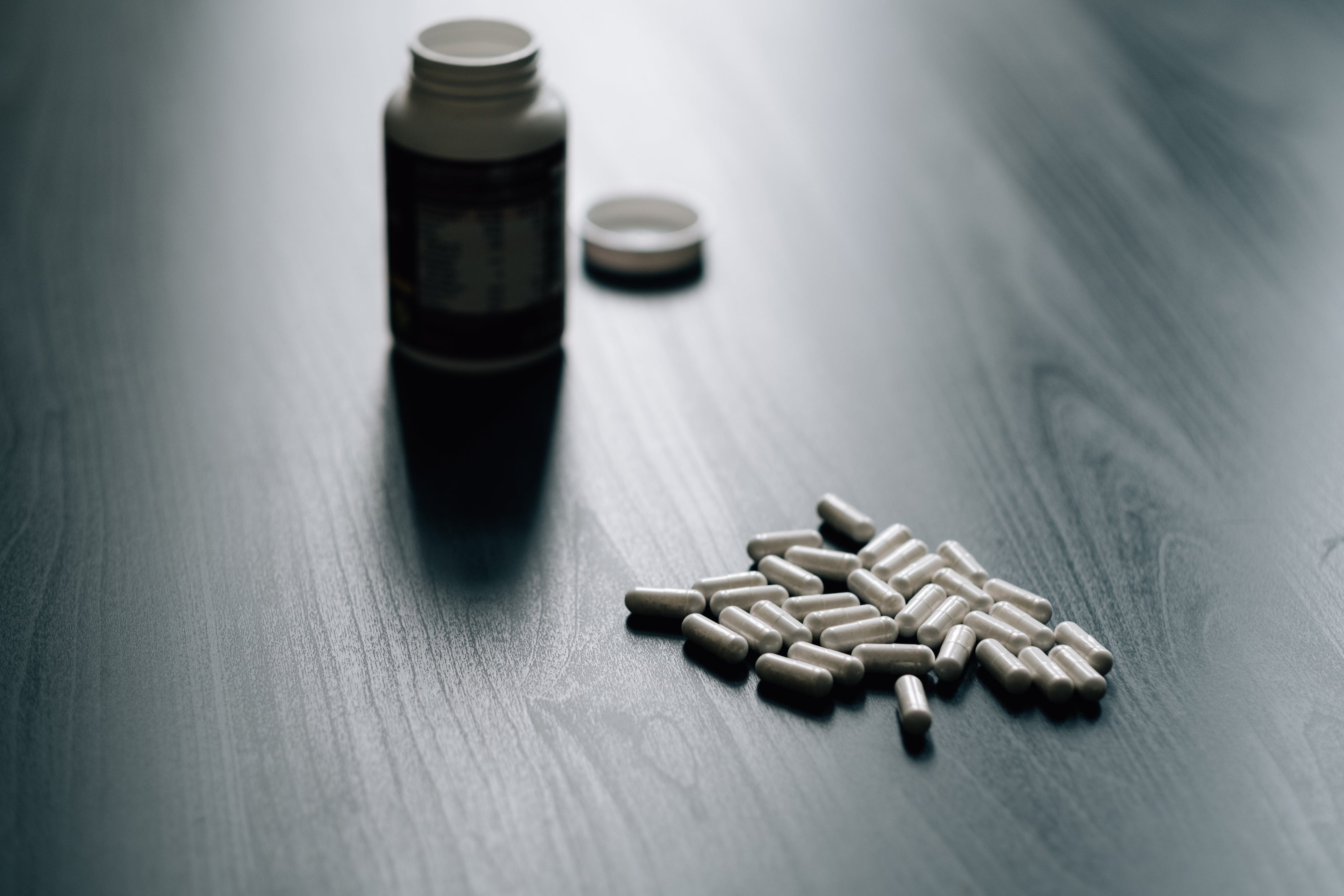
Medication Side Effects
Certain medications, such as antihistamines, decongestants, and nasal sprays can have drying effects on the nasal mucosa as a side effect. For example, Flonase, a typical choice for allergies, warns it may induce nasal dryness leading to related problems
-

Age
Nasal Dryness affects people of all ages, with adults over 50 being particularly susceptible. This is due to decreased mucous production and thinning of the nasal mucosa along with other factors such as increased medication usage and underlying health conditions.
-

Nose Bleeds
Nosebleeds can both result from and cause a dry nose. They typically occur in the lower nasal passages, where dryness can lead to cracks exposing delicate blood vessels. Additionally, repeated nose bleeds may damage the delicate nasal tissues making them more prone to dryness and subsequent bleeding in the future.
-
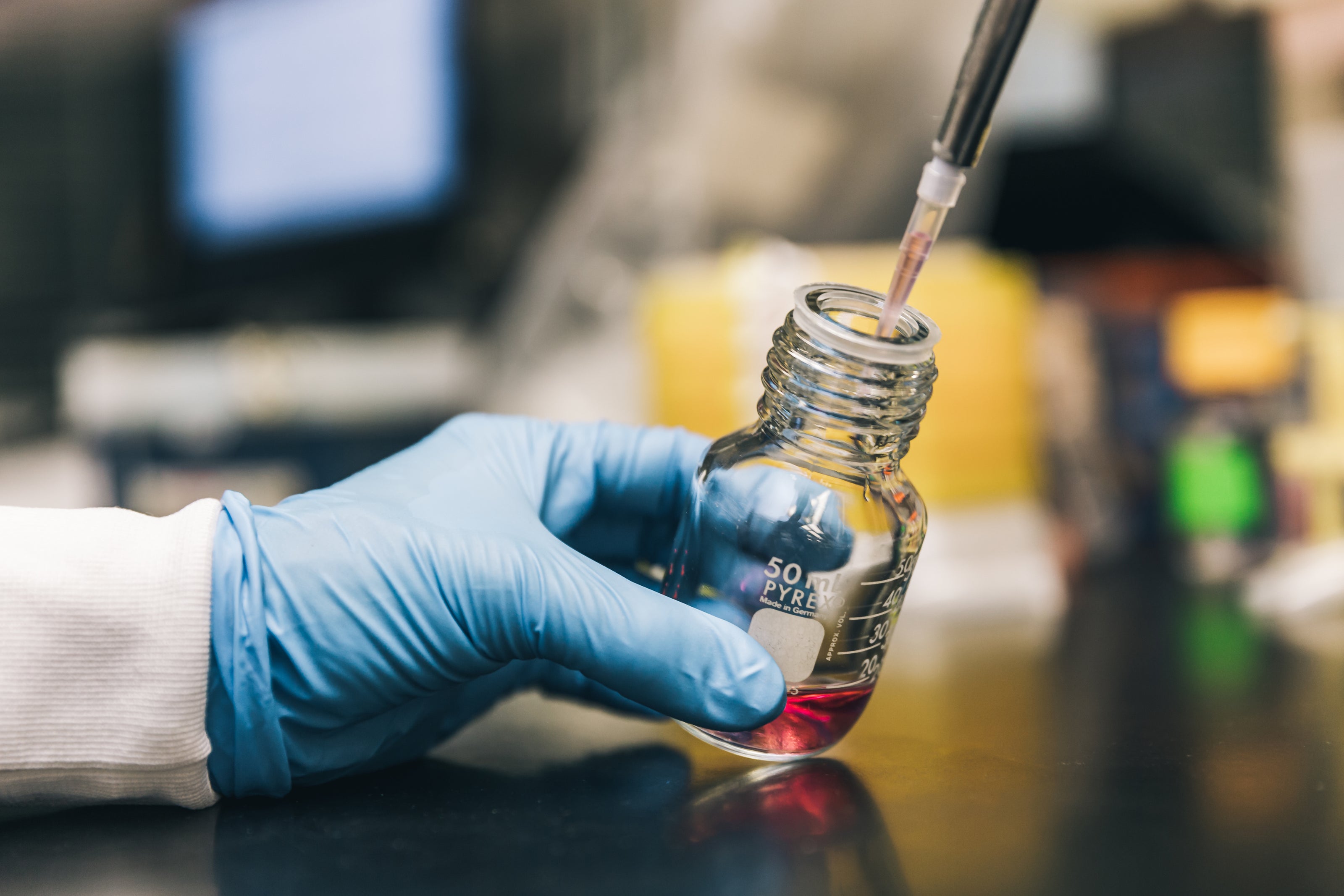
pH
nasal pH, which refers to the acidity or alkalinity of the nasal mucosa, plays a crucial role in maintaining nasal health and moisture balance. When imbalanced, it can disrupt the mucosal barrier function, leading to increased susceptibility to dryness, irritation, and inflammation.
Recognizing Nasal Dryness: Symptoms and Signs
Nasal Congestion
Difficulty breathing through the nose due to inflammation and swelling of the nasal tissues, commonly associated with nasal dryness. This happens because the nasal membranes are dry and swollen. The key is to prevent them from being swollen and irritated by keeping them moisturized.
Nosebleeds
Occasional or recurrent episodes of bleeding from the nasal passages. This both results from dryness and irritation of the nasal mucosa and can also cause dryness- leading to more nose bleeds. As the nasal mucosa dries, it exposes the fragile blood vessels underneath.
Soreness or Pain
Discomfort or pain in the nasal area, especially when breathing in or touching the nose is indicative of underlying dryness and inflammation.
Crusting or Scabbing
Formation of dry crusts or scabs inside the nostrils are often cause by dried mucus and excess nasal secretions due to inadequate moisture in the nasal passages.
Difficulty Sleeping
Sleep disturbances including snoring, mouth breathing, and waking up with a dry throat or mouth is often caused by nasal dryness.
Decreased Sense of Smell
Reduced ability to detect odors or perceive scents may be caused by nasal dryness affecting the olfactory receptors in the nasal passages which are either clogged by excess mucus or are too dry to function.

Mastering Nasal Dryness: The Essential Strategy for relief and Management
Protect
Safeguard your nasal passages from further irritation and dryness by avoiding triggers such as dry air, pollutants, and allergens. Use a humidifier to maintain optimal indoor humidity levels, wear a scarf or mask while outdoors, and use nasal moisturizing and protecting products.
Moisturize
While rinsing with saline can provide temporary relief by clearing out irritants, addressing the underlying cause of dryness is crucial for long-term management. Opt for a nasal moisturizer that is more than just saline, containing multiple moisturizers to replenish lost moisture and restore the natural balance of your nasal mucosa. By providing sustained hydration, you tackle the root of nasal dryness, preventing the body from overproducing mucus in an attempt to self-moisturize.
Preserve
Preventing additional moisture loss is just as important as adding new moisture. Take proactive measures to preserve the moisture in your nasal passages by avoiding things like cigarette smoke, strong chemicals, and excessive nose blowing. Stay hydrated by drinking plenty of water throughout the day, as adequate hydration supports mucous production and maintains nasal moisture levels. Use moisturizing nasal sprays that continuously add moisture throughout the day formulated to the pH of your nose, Additionally, consider using nasal gel before bedtime to create a protective barrier and prevent moisture loss overnight.
By following these three steps- Protect, Moisturize, and Preserve- you can effectively manage nasal dryness and promote overall nasal health.

Nasal Dryness Demystified: Exploring the Scientific Roots
A closer look at the science of nasal dryness:
-
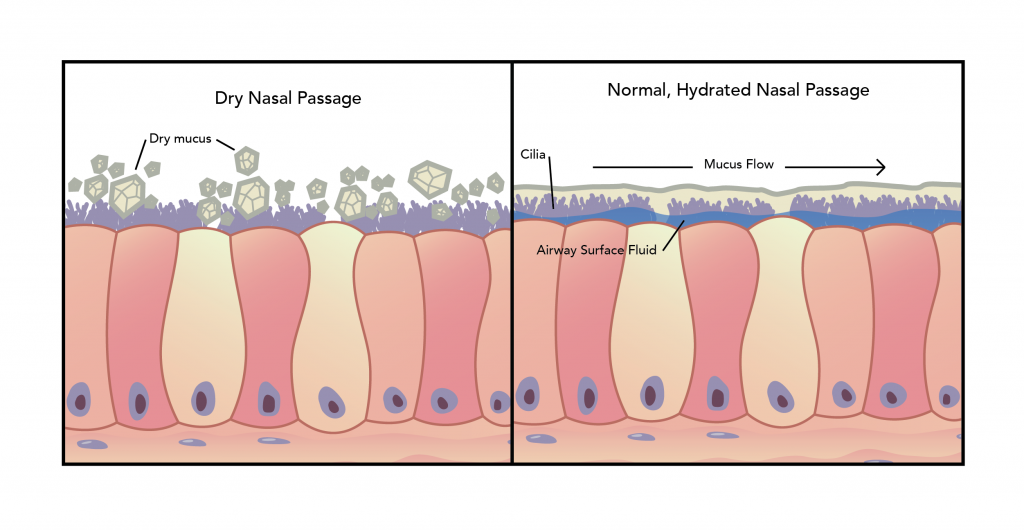
Dry versus healthy nasal passages:
A healthy mucosa traps allergens and debris trapped in the mucus and then the mucus flows on top of the ciliary layer and then is carried away with the motion of the nasal ciliary and swallowed. When the nose is dry, the ciliary layer is no longer effective, and you end up with dry boogers or the nose tries to compensate by producing excess mucus causing congestion and a runny nose. You may therefore think you nose is wet and has too much moisture but it actually is dry.
-
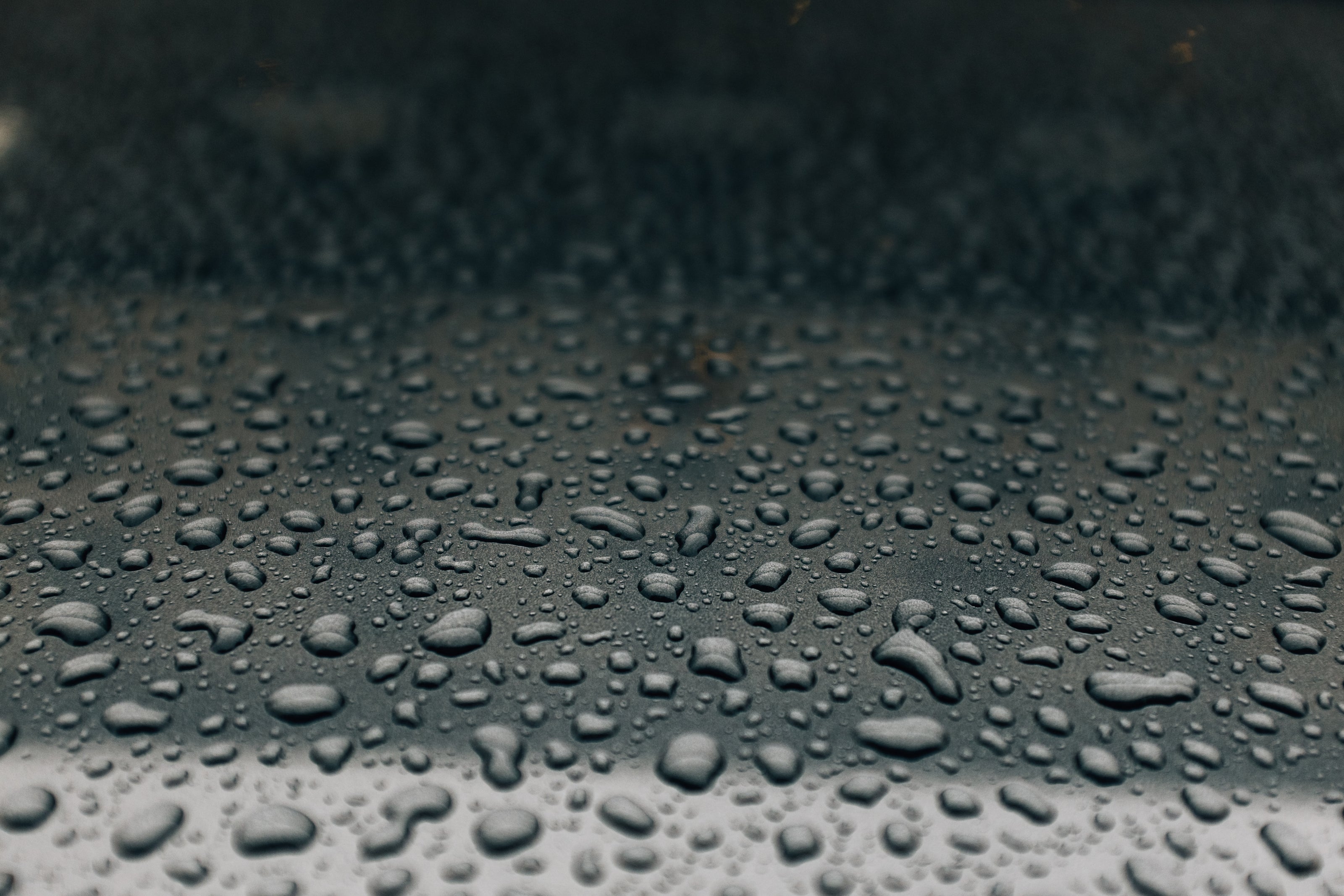
How does your nose get moisturized?
Nasal sprays of saline are great for rinsing but don't really moisturize for long. You need a product that has built in moisturizers or as we call them, wetting agents. In addition you want to work with the bodies natural process of moisturization. Every cell in your body has something called a sodium/potassium pump that controls the flow of sodium and potassium which in turn controls the passive diffusion of water in and out of the cell. Its obvious therefore that you need both sodium and potassium in your nasal moisturizer to work most effectively with your body naturally. Many sprays only contain sodium.
-
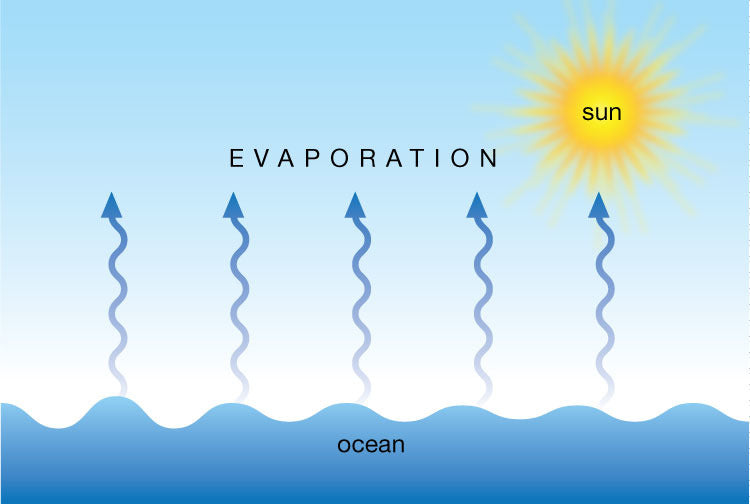
Keep as much moisture in the nasal mucosa as you can.
Its not just about adding moisture to the nose, its also about keeping whatever moisture you can. Wetting agents act as a protective layer that not only ensures broad coverage, it also helps to retain moisture by not leaving it escape because of how wetting agents work. Make sure the products you use have wetting agents.
-

Importance of pH
The normal pH of the nose is between 6-6.8 which helps to minimize the growth of bacteria in the nasal passages. Nasal products can have an effect on pH as the pH is sometimes isotonic (ie pH 7.0) or hypertonic (greater than pH 7.0) but this change in pH can lead to further dryness, infections or may even interfere with the nasal steroid products you may be taking. Steroids are specifically formulated to have a pH of around 6.2 and when the pH is altered by say a saline spray, this can make the steroid itself less effective.
-

Why you don't want Aloe in a nasal product:
Aloe is commonly used to treat irritated skin but we dont recommend it it nasal products for several reasons. First it comes from a plant and people can have allergies to aloe vera. Also some studies have suggested that aloe might even be toxic to the lining of the nasal mucosa. Look for products that dont have aloe.

Expert Insights: Understanding the Importance of Addressing Dry Noses
We spoke with leading healthcare professionals and experts in nasal care to gain valuable insights into the significance of addressing dry noses for overall nasal health. A board-certified otolaryngologist, emphasizes, 'Dry noses can lead to irritation, inflammation, and even nosebleeds if left untreated. Maintaining nasal moisture is essential for supporting the natural functions of the nasal passages and protecting against infections.'
An allergist and immunologist, adds, 'Chronic nasal dryness can disrupt the mucosal barrier, making the nasal passages more susceptible to allergens and irritants. By addressing dry noses promptly, individuals can alleviate discomfort and reduce the risk of developing more serious nasal conditions.'
These expert insights underscore the importance of prioritizing nasal moisture and addressing dry noses as part of a comprehensive nasal care routine. By maintaining optimal nasal health, individuals can breathe easier and enjoy improved overall well-being.

Proactive Measures: Preventing Nasal Dryness with Expert Tips
Keeping Nasal Dryness at Bay
-
Use a Humidifier
Adding Moisture to the air with a humidifier can help maintain optimal humidity levels in your home, preventing dryness in your nasal passages. Especially during the winter months or in dry climates, indoor heating systems can reduce humidity levels leading to dry nasal passages. Using humidifiers is particularly beneficial for individuals prone to sinus issues.
-
Stay Hydrated
Adequate hydration is essential for overall health, including the health of your nasal passages. When your body is properly hydrated, it can produce mucus to help keep your nasal passages moisturized and lubricated. Drinking plenty of water throughout the day can also thin out nasal secretions making them easier to expel and reduces risk of congestion or irritation.
-
Avoid Irritants
Minimize exposure to irritants such as cigarette smoke, strong chemicals, and pollutants which can all cause nasal dryness by irritating the delicate mucous membranes lining your nasal passages which can trigger inflammation, increased mucus production, congestion and dryness. Wear a mask or scarf when appropriate outdoors and use natural or hypoallergenic cleaning products.
-
More than Just Saline.
While regular saline rinses can help moisturize and cleanse your nasal passages temporarily. Look for products that are "more than just saline" Such as Rhinase Nasal Mist and gel products which provide sustained hydration and address underlying cause of nasal dryness. Rhinase goes beyond simple saline solutions by addressing the underlying cause of dryness preventing issues from continuing in the future.

Finding Relief: Exploring Treatment Options
Relief at Your Fingertips:
Explore effective treatment options for nasal dryness
-
Rhinase X Nasal Spray | Less Sneezing, Itchiness, Nasal drip and Congestion | Mores Than Just Saline | Now with Xylitol | Long Lasting Symptom Relief from Nasal Dryness | (1 oz.)
Regular price $14.20 USDRegular priceUnit price / per$16.45 USDSale price $14.20 USDSale -
Rhinase Allergy Relief Lubricating Nasal Gel – Steroid Free, Dual Wetting Agent & Salt Formulation (1 oz.) for Nasal Dryness Nosebleeds Saline Gel for Nose…
Regular price $15.50 USDRegular priceUnit price / per$18.00 USDSale price $15.50 USDSale -
Rhinase Nasal Care Combo Pack - Nasal Gel (1 oz) & Saline Spray (1 oz) for Dryness, Allergy Relief & Nosebleed Prevention, Aloe-Free & pH Balanced
Regular price $21.95 USDRegular priceUnit price / per$35.00 USDSale price $21.95 USDSale -
New:Rhinase X Combo Pack - Nasal Gel (30g) & Spray (30ml) for Complete Nasal Relief: Dryness, Congestion, Post Nasal Drip, and Allergies. Retain Moisture, Protect Against Moisture Loss and xylitol
Regular price $23.95 USDRegular priceUnit price / per$32.00 USDSale price $23.95 USDSale
